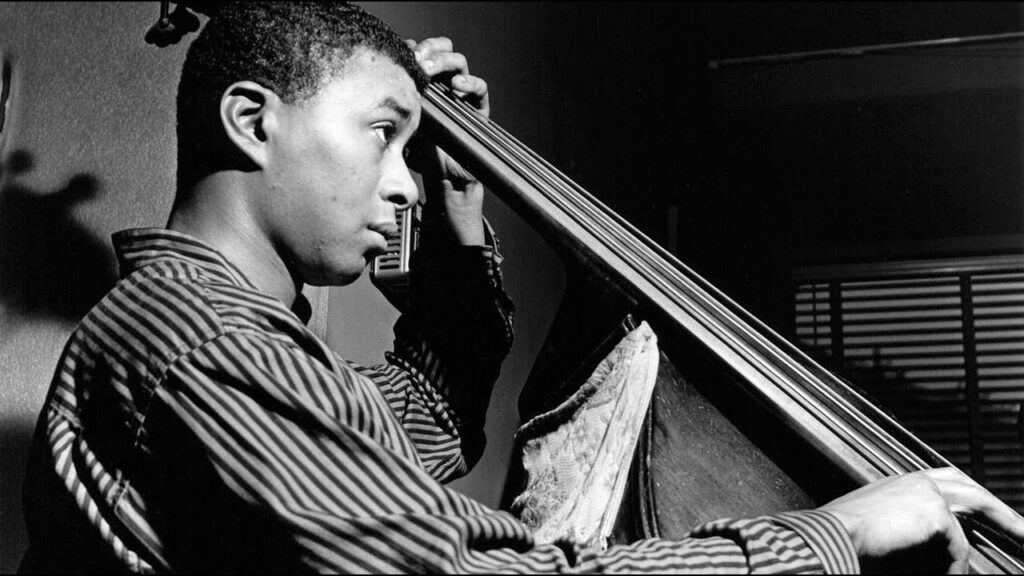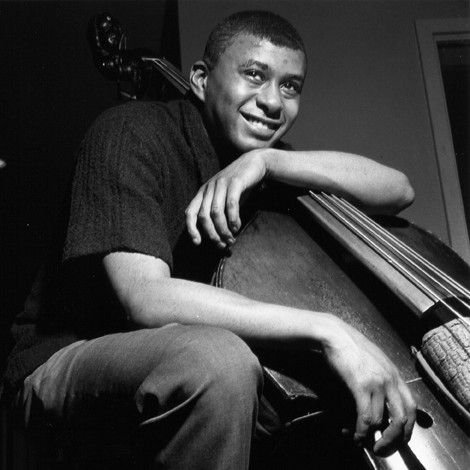Dive into the Power & Passion of ‘Tenor Madness
In the vast panorama of jazz, Sonny Rollins’ “Tenor…
The world of jazz has been graced by the talents of many incredible musicians, but few have left an indelible mark like bassist Paul Chambers. Today, on what would have been his 88th birthday, we celebrate the life, career, and enduring influence of this jazz titan.

Born in Pittsburgh in 1935, Chambers grew up in the bustling jazz scene of Detroit. It was here that he first encountered the music that would shape his life. The virtuosic bass playing of Oscar Pettiford and Ray Brown captivated him, setting him on the path to becoming a bassist himself.
By the time Chambers arrived in New York, his talent was undeniable. After joining the J.J. Johnson-Kai Winding quintet, his career skyrocketed. But it was his tenure with the legendary Miles Davis Quintet that solidified his place in jazz history. Playing alongside John Coltrane, Philly Joe Jones, and Red Garland, Chambers became a defining force in the development of hard bop.

His collaborations with other jazz greats speak volumes about his talent. As the bassist on Coltrane’s masterpiece, Giant Steps, and Davis’ iconic Kind of Blue, Chambers showcased his versatility and adaptability. The list of luminaries he worked with is staggering, from Sonny Rollins and Bud Powell to Cannonball Adderley and Freddie Hubbard.
Chambers’ debut album, Chambers’ Music (1956), introduced the world to his prowess as a bandleader. Featuring the likes of John Coltrane and Kenny Burrell, the album is a testament to Chambers’ musical vision. However, it’s his 1957 album, Bass on Top, that stands as his most daring and innovative work. Here, Chambers took center stage, challenging the conventional role of the bass in jazz.

In Bass on Top, Chambers pushed the boundaries of what the bass could do. He played it like a saxophone or trumpet, carrying melodies and delivering captivating solos. While it may not have been everyone’s cup of tea, there’s no denying the courage and ambition behind such a bold experiment. This album remains a testament to Chambers’ willingness to break the mold and redefine the bass’s role in jazz.
Throughout his career, Chambers developed a unique playing style that garnered praise from fellow musicians and critics alike. His impeccable sense of time, fluid technique, and knack for choosing just the right notes set him apart from his contemporaries. This skill allowed him to adapt to different styles with ease, as evidenced by his extensive list of collaborators.
As a member of the Miles Davis Quintet, Chambers played a pivotal role in shaping the hard bop sound. His rhythmic prowess and keen sense of swing supported the band’s adventurous solos, laying the foundation for countless memorable performances. It’s impossible to imagine the quintet without his driving bass lines and unerring sense of groove.
Chambers’ impact on jazz extends far beyond his work with Davis and Coltrane. He mentored and inspired generations of bassists, leaving a lasting legacy that continues to resonate with musicians today. His influence can be heard in the playing of modern bassists, who owe much to Chambers’ groundbreaking approach to the instrument.

Sadly, Paul Chambers’ life was cut tragically short. He passed away at the age of 33, leaving behind a wealth of recorded work that continues to inspire and captivate listeners. As we celebrate his birthday, we remember the man and his music, and the incredible impact he had on the world of jazz.
In conclusion, the life and legacy of Paul Chambers is a testament to the power of innovation and creativity in music. As we celebrate his birthday, we honor his immense talent, his passion for the art form, and his indelible contributions to jazz history. His work with the Miles Davis Quintet and countless other jazz greats, as well as his own bold experiments in Bass on Top, have left an enduring mark on the genre.
Today, let us remember Paul Chambers not only as a gifted bassist, but as a musical trailblazer who helped shape the course of jazz. His influence can be heard in the countless bassists who have followed in his footsteps, each adding their own unique voice to the ever-evolving tapestry of jazz.
As we listen to his recordings and reflect on his career, let us also celebrate the spirit of innovation that defined Chambers’ approach to music. By challenging conventions and pushing the boundaries of what the bass could do, he demonstrated the transformative power of creativity in jazz.
So, on this day, let us raise a glass to the life and legacy of Paul Chambers. May his music continue to inspire and captivate us and may his spirit of innovation live on in the generations of musicians to come.
Happy Heavenly Birthday, Paul Chambers. Your contributions to the world of jazz will never be forgotten, and your spirit of adventure will continue to inspire musicians for years to come. Thank you for the music, the memories, and the enduring legacy you’ve left behind. Here’s to you, Mr. P.C.!